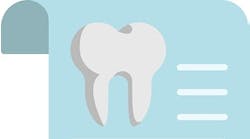As the dental industry continues to evolve, practitioners face the challenges of daily patient care and the inevitable question of retirement. Planning a smooth exit from dental practice is a complex task that requires careful consideration and strategic decision-making. In this article, I’ll explore the nuances of retirement for dentists and the importance of well-thought-out exit strategies.
Dentistry has witnessed significant transformations in recent years, from advancements in technology to shifts in patient expectations. As dentists adapt to these changes, planning for retirement becomes a vital aspect of their professional journey. The traditional model of simply closing the practice and handing over the keys is evolving into more nuanced and strategic exit plans.
Financial preparedness
One of the foremost considerations in retirement planning for dentists is ensuring financial stability. Many practitioners invest significant resources into building and maintaining their practices, making it imperative to have a robust financial plan for retirement. This includes a comprehensive understanding of personal and practice finances, evaluation of potential sources of income during retirement, and exploration of investment opportunities. For example, I recently had an owner of a dental practice ask how much he needed to sell his practice so he could live a comfortable lifestyle. We did a valuation on his practice and used that number for the financial plan. We did a few “what if” analyses in case he didn’t get as much for his practice. The conclusion was that with proper investment allocation and living within his means, he would be able to sell his practice and live very comfortably for the rest of his life.
It's critical that dentists work closely with financial advisors who specialize in working with other dentists to develop tailored plans that align with their retirement goals. This may involve the sale of the practice, investment diversification, and the creation of a sustainable income stream for the post-retirement phase. If you don’t already work with an advisor who specializes in working with dentists, ask your industry colleagues to see if they have anyone they could refer.
Succession planning
Succession planning is a critical component of any dentist's exit strategy. Identifying and grooming a successor is essential for ensuring the continuity of patient care and maintaining the practice's reputation. Whether it involves bringing in an associate with an eventual buyout option or seeking external candidates, having a clear plan in place is key. This process can take time, so you should be looking ahead. Bringing in an associate with the intent of buying the practice can take a minimum of three years and, in many cases, more than five years.
Mentorship plays a crucial role in succession planning. Dentists looking to retire should actively mentor potential successors, imparting clinical skills and the business acumen required to run a successful practice. Mentoring ensures a smooth transition and helps the successor feel confident in taking over the practice’s responsibilities.
Practice valuation
One of the most common questions I get from dentists looking to sell their business is how they figure out the value of their practice. There are a few ways to measure valuation, but I’ll give two popular rules of thumb.1 One is the gross revenue method: Your dental practice is valued at 70% of its gross revenue. The other is the net income method: Your dental practice’s estimated value equals one times your net income.
Of course, there are many factors that can increase or decrease that value. These factors include location, revenue stream, practice management, patient base, technology, and equipment. A financial advisor who specializes in exit planning can provide you with a valuation for your business.
Technological integration
In an era of rapid technological advancement, incorporating modern tools and systems into a dental practice is beneficial not only for day-to-day operations but also for enhancing its appeal to potential buyers. Dentists contemplating retirement should assess their practices' technological infrastructure and consider making strategic investments to stay competitive in the market.
Moreover, embracing digital communication tools and electronic health records can facilitate a smoother transition for the incoming dentist or practice owner. This technological integration ensures the continuity of patient care and minimizes disruptions during the handover process.
The emotional aspect
Beyond the financial and logistical considerations, dentists often face emotional challenges when retiring. Many practitioners have devoted a significant portion of their lives to their profession, building relationships with patients and colleagues. The prospect of stepping away from a career that has defined their identity can be daunting.
Addressing the emotional aspects of retirement requires open communication and self-reflection. Dentists must recognize the value of their contributions and acknowledge the positive impact they have had on their patients’ lives. Establishing a support network, including fellow retirees and mental health professionals, can be instrumental in navigating this transition. It’s also important for dentists to think about what they want to do once they retire and have a list of hobbies, travel plans, or other activities to help ease the transition.
Community engagement and legacy
For many dentists, retirement is not just about stepping away from a profession; it's about leaving a legacy in the community. Engaging with the community and ensuring a seamless transition of care to a new practitioner are vital components of a dentist's exit strategy.
Dentists can actively participate in community events, health fairs, and educational programs to establish their legacy. Communicating the transition to patients and reassuring them of continued quality care builds trust and contributes to a positive perception of the retiring dentist's legacy.
A holistic approach
Retirement for dentists is a multi-faceted journey that involves careful consideration of financial,
logistical, emotional, and community-related aspects. A well-executed exit strategy not only ensures a comfortable retirement for the practitioner but also paves the way for the continued success of the dental practice and the well-being of its patients.
Dentists must proactively engage in retirement planning, seeking professional guidance and leveraging the support of their networks. By taking a holistic approach and addressing the various dimensions of retirement, dentists can navigate this transition with confidence, leaving behind a positive legacy and embracing the next chapter of their lives.
Editor's note: This article originally appeared in DE Weekend, the newsletter that will elevate your Sunday mornings with practical and innovative practice management and clinical content from experts across the field. Subscribe here.
Reference
- Gross revenue vs. net revenue reporting: what’s the difference? Investopedia. Updated February 13, 2024. https://www.investopedia.com/ask/answers/102714/what-are-difference-between-gross-revenue-reporting-and-net-revenue-reporting.asp
Mark Kravietz, CEPA, CIMA, CFP, managing partner and founder of Aline Wealth, received his certified financial planner and certified investment management analyst designations from the Wharton School of Business. He specializes in exit planning and earned the prestigious accreditation of certified exit planning advisor at the University of Chicago’s Booth Business School. He is a founding member and president of the New York chapter of the Exit Planning Institute (EPI). For more information, visit alinewealth.com.








